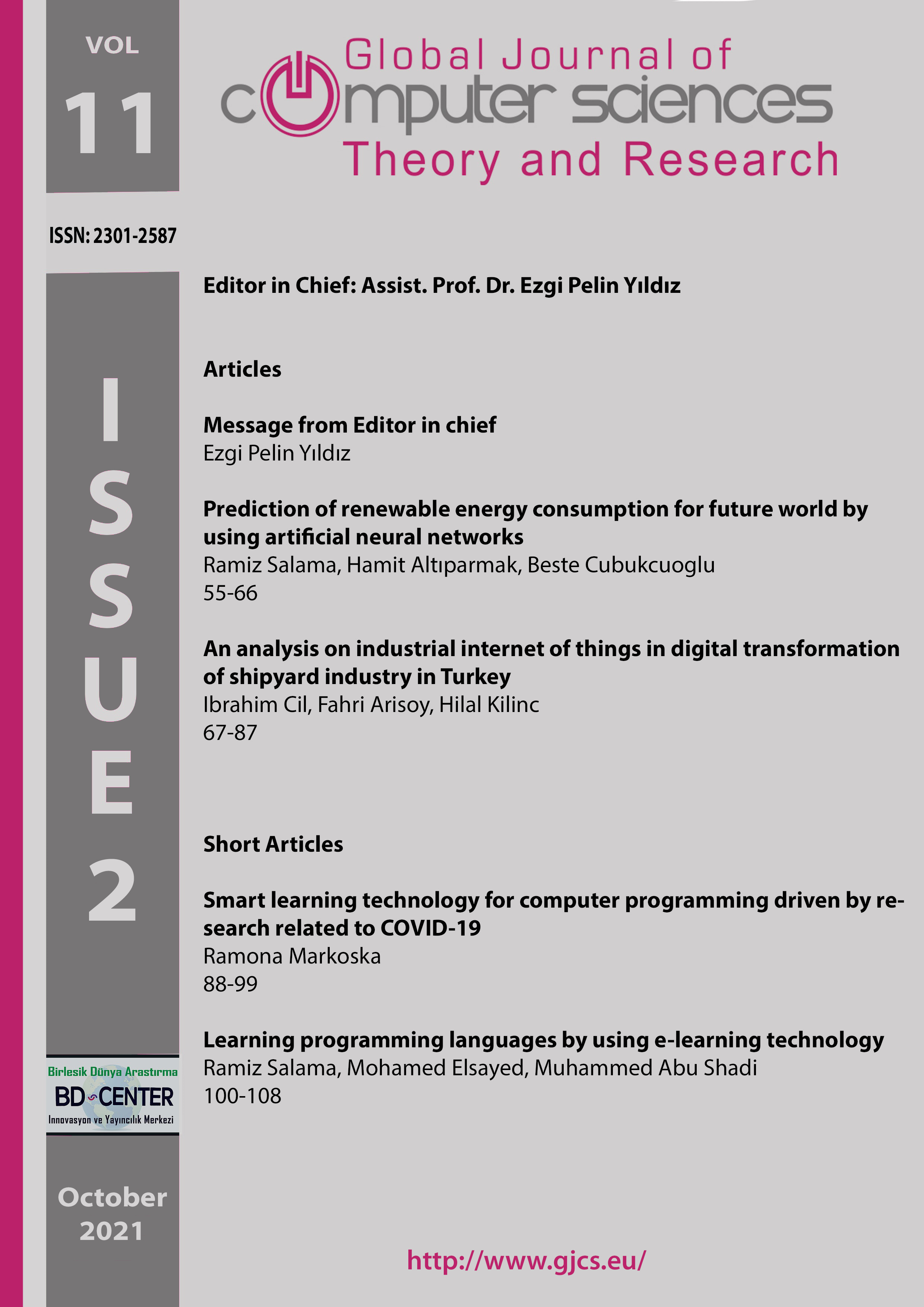Prediction of renewable energy consumption for future world by using artificial neural networks
Main Article Content
Abstract
Artificial intelligence has proven itself in many areas in combating complex and challenging problems. In this study, the estimation of the use of artificial neural networks in long term renewable energy consumption was undertaken. The study proposes an artificial intelligence predicting energy consumption and energy needs of houses and buildings in the future by using feedback artificial neural networks. In this study, "Google Project Sunroof-Solar Panel Power Consumption Offset Estimate" data set is used. With the database, artificial intelligence has been obtained by using artificial neural networks with feedback. The training of the artificial intelligence obtained was completed with 7999 samples with 25 different categories. This database, which Google collects, is obtained at high costs, so it is not possible for everyone to access such and its bases. Our artificial intelligence with feedback artificial neural network obtained a high percentage for training success. Validation success was high and test success was high too.
Keywords: Artificial Neural Networks; Energy Consumption; Energy; Renewable Energy
Downloads
Article Details

This work is licensed under a Creative Commons Attribution 4.0 International License.
Global Journal of Computer Sciences: Theory and Research is an Open Access Journal. All articles can be downloaded free of charge. Articles published in the Journal are Open-Access articles distributed under CC-BY license [Attribution 4.0 International (CC BY 4.0)]
Birlesik Dunya Yenilik Arastirma ve Yayincilik Merkezi (BD-Center) is a gold open access publisher. At the point of publication, all articles from our portfolio of journals are immediately and permanently accessible online free of charge. BD-Center articles are published under the CC-BY license [Attribution 4.0 International (CC BY 4.0)], which permits unrestricted use, distribution, and reproduction in any medium, provided the original authors and the source are credited.
